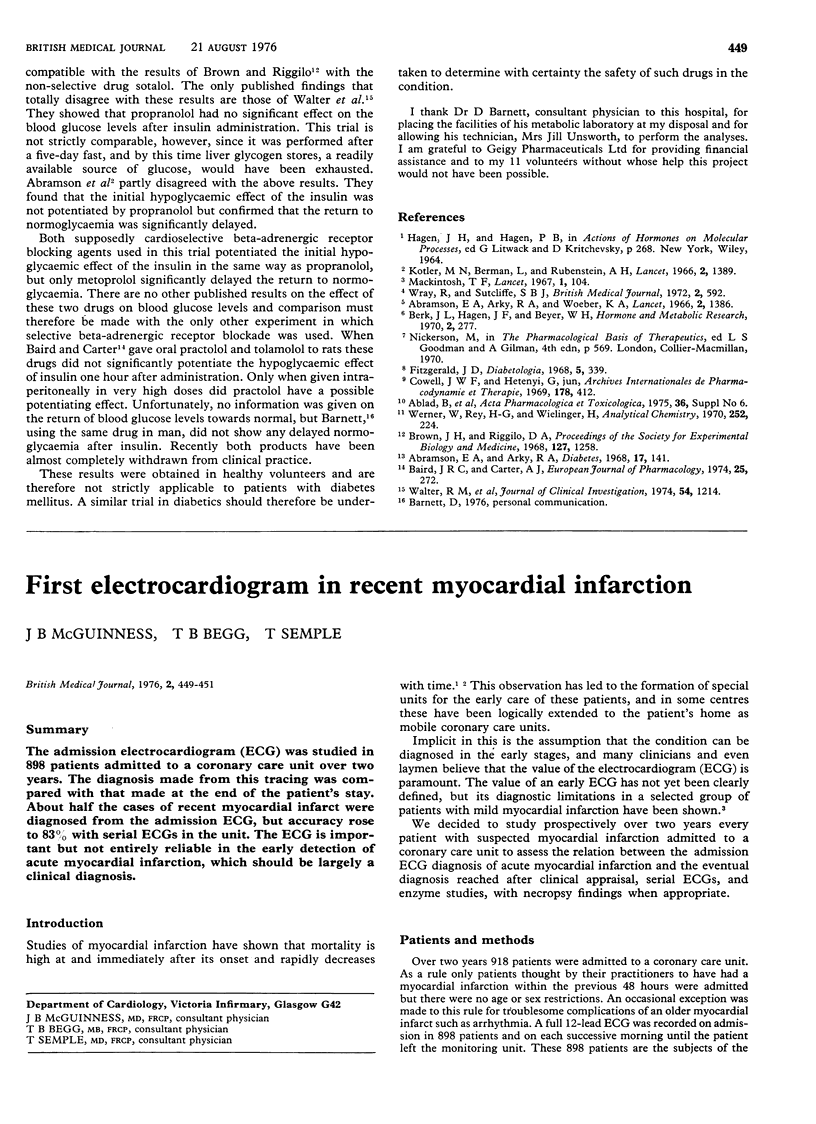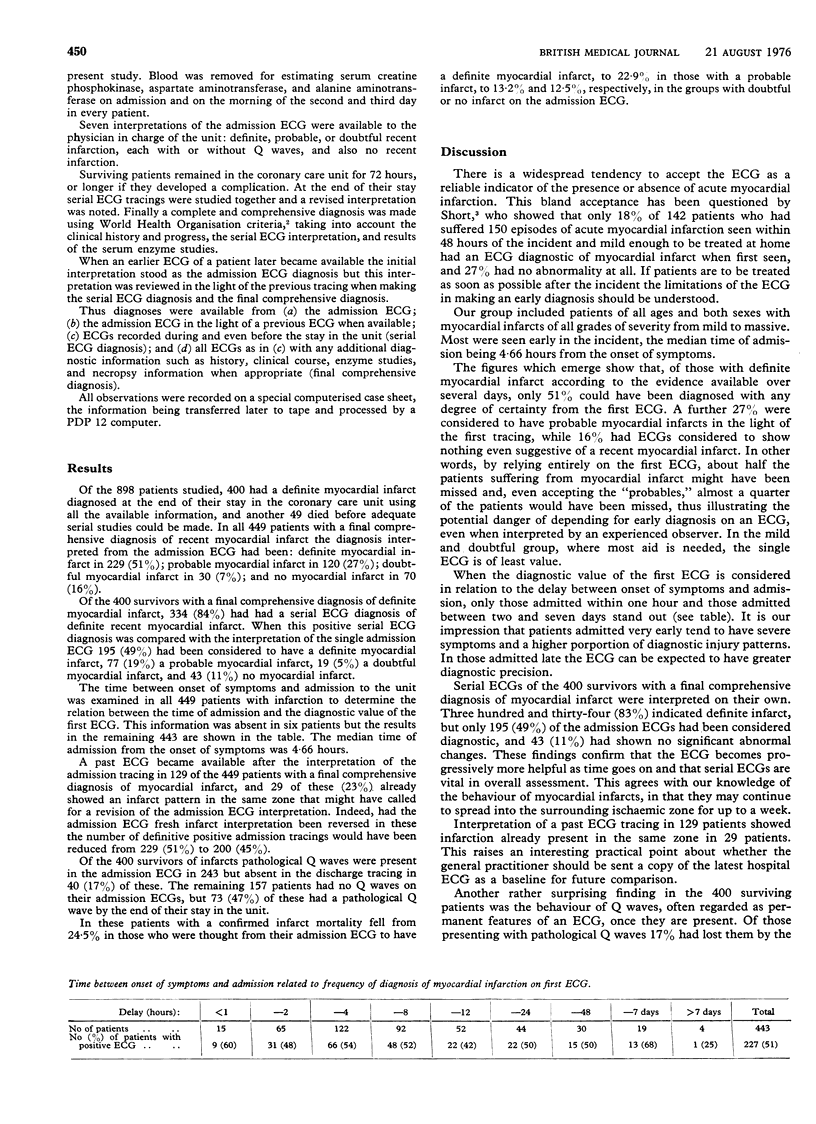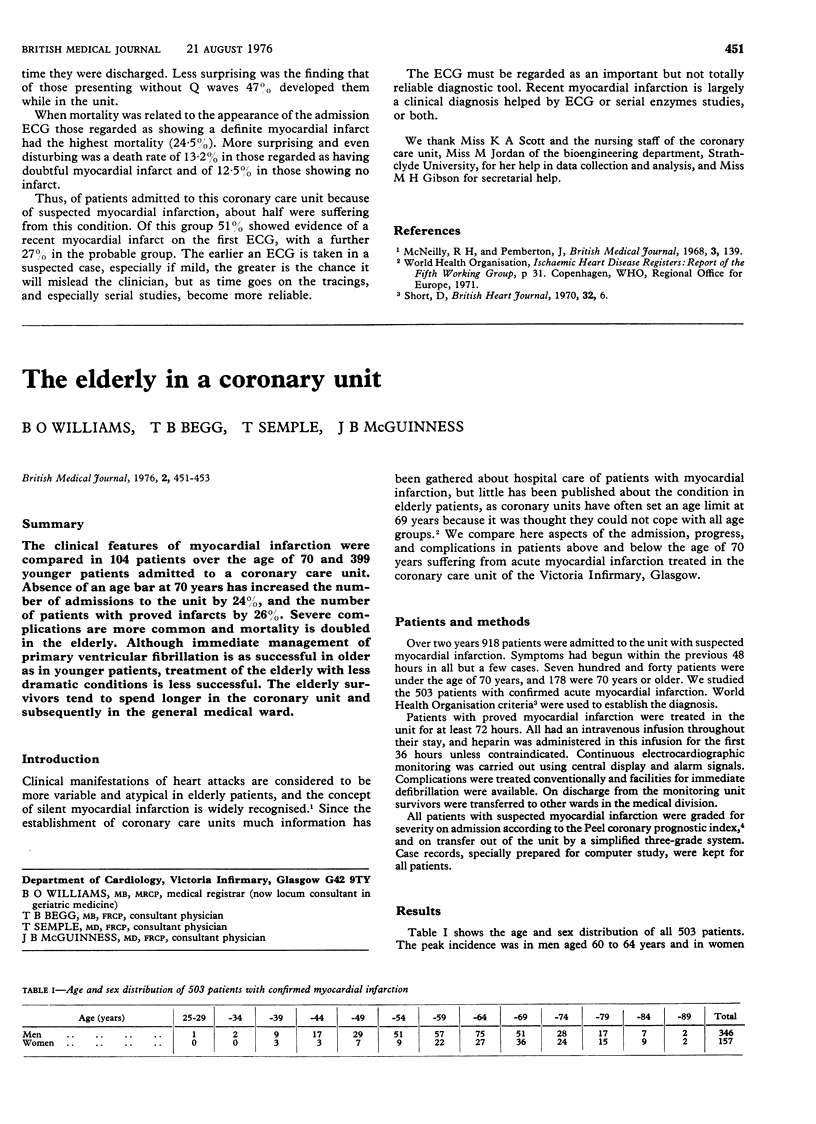Abstract
The admission electrocardiogram (ECG) was studied in 898 patients admitted to a coronary care unit over two years. The diagnosis made from this tracing was compared with that made at the end of the patient's stay. About half the cases of recent myocardial infarct were diagnosed from the admission ECG, but accuracy rose to 83% with serial ECG's in the unit. The ECG is important but not entirely reliable in the early detection of acute myocardial infarction, which should be largely a clinical diagnosis.
Full text
PDF


Selected References
These references are in PubMed. This may not be the complete list of references from this article.
- McNeilly R. H., Pemberton J. Duration of last attack in 998 fatal cases of coronary artery disease and its relation to possible cardiac resuscitation. Br Med J. 1968 Jul 20;3(5611):139–142. doi: 10.1136/bmj.3.5611.139. [DOI] [PMC free article] [PubMed] [Google Scholar]
- Short D. The earliest electrocardiographic evidence of myocardial infarction. Br Heart J. 1970 Jan;32(1):6–15. doi: 10.1136/hrt.32.1.6. [DOI] [PMC free article] [PubMed] [Google Scholar]


